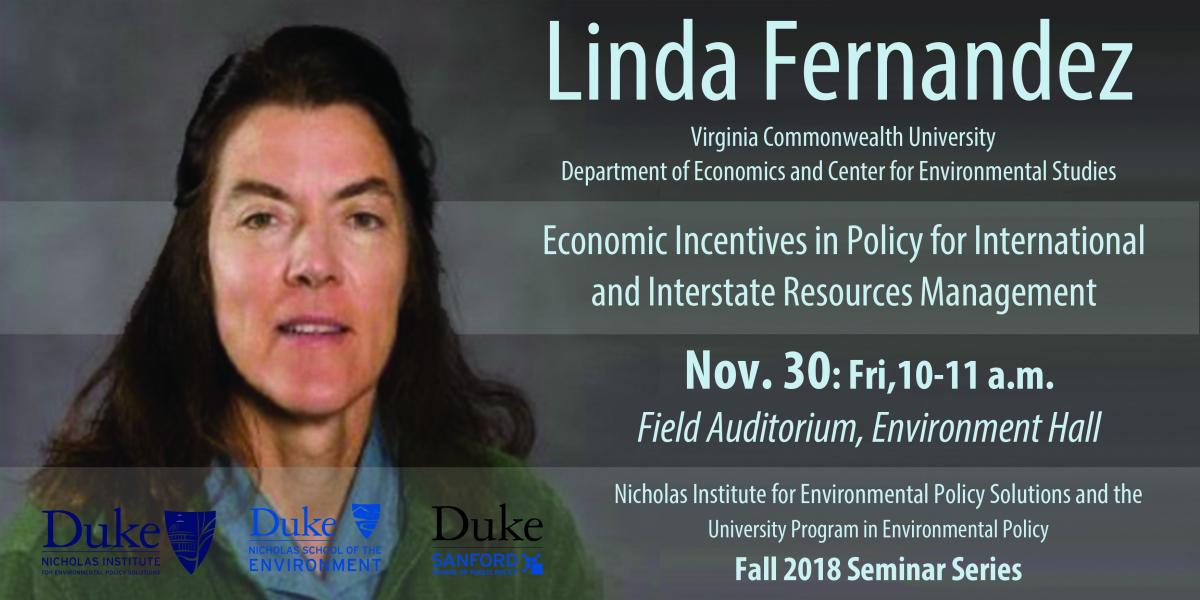About
Linda Fernandez, associate professor of environmental and resource economics at Virginia Commonwealth University in the Department of Economics and Center for Environmental Studies, will present "Economic Incentives in Policy for International and Interstate Resources Management" on Friday, November 30.
Matching the scale of policy to the temporal and spatial scale of environmental and resources presents a formidable challenge even if scale straddles just two jurisdictions. Three different analyses are offered in the seminar in order to understand impacts of management decisions taken jointly and independently through the economic incentives embodied in policy related to water, fisheries and ecosystems. The first analysis compares strategies of states under the Clean Water Act Total Maximum Daily Load policy for the Chesapeake Bay. Through a spatial and dynamic model with economic, hydrologic, environmental and institutional components, a comparison of joint versus separate phosphorus abatement is made. Asymmetry in costs and natural variation throughout the watershed are taken into account in order to gauge the least cost option for states to meet the 2025 goal and assess how well they are doing thus far. The second analysis addresses management decisions taken jointly and independently by Russia, who purposefully introduced the Red King Crab (RKC) in the 1960s, and Norway, into whose waters the crab has migrated. This analysis uses a spatial dynamic model to discuss the optimal joint management of international invasive species challenges with damages to benthic habitat. The RKC presents particularly interesting challenges due to its dual nature as invasive species and market commodity. The third analysis explores the international trade and biosecurity relationship to answer the following: Does the World Trade Organization’s (WTO) Sanitary and Phytosanitary Program (SPS) enable simultaneous biosecurity and enhanced trade for importers and exporters? How do WTO policies alter agricultural production and trade flows? The SPS has not been quantitatively analyzed and this empirical test with data from 21 years for 33 countries helps answer the questions.
This talk is part of the Nicholas Institute for Environmental Policy Solutions and the University Program in Environmental Policy seminar series featuring leading experts discussing a variety of pressing environmentally focused topics. This talk is also sponsored by the Nicholas School of the Environment and the Sanford School for Public Policy.

